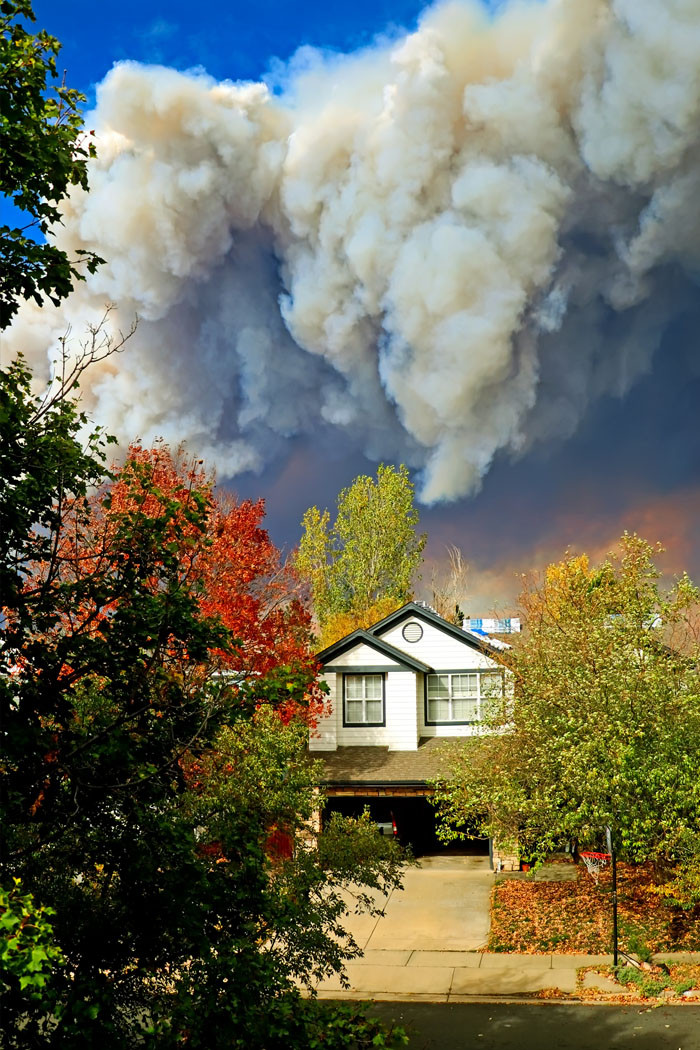Additional Living Expense Coverage Basics for a Total Wild Fire Loss

A few words from Daniels Law partner, Bill Daniels:
When we had a house fire in 2009, our big problem was what to do with the horses.
We have lived on a small horse farm in the San Fernando Valley for about thirty years. My wife Cheryl is a serious animal person.
So when the fire burned down our house, it threatened to scatter our entire family and also all our pets and livestock.
The tally back then, if I recall, was a quarter horse gelding, two Arabian mares, a retired blind pony, two pygmy goats, three domestic cats, four Labrador dogs (two black, one brown and one white) and one domestic rat.
Imagine you are looking for a rental home to relocate this crowd and you have an understanding of the predicament we were in. Fortunately, we now had homeowner insurance that included basic fire protection. In addition to property damage services, there was something known in the insurance industry as “ALE.”
The ALE coverage is intended to reimburse you for the additional costs you incur as a cause of a damage. In our case it was the house fire.
In general, this includes things like rent for temporary furniture, pet boarding, moving costs, the extra cost of meals in restaurants when you don’t have room to cook and so on.
How much ALE coverage is offered depends on your insurance policy. Some policies have no monetary cap, which can help ease the pain if your assets do not fully contain what you have lost. Others have duration and dollar limits. They vary from case to instance.
Whatever the details, ALE can be a lifesaver during the reconstruction process, which can take many months or more than a year.
So if, after a fire during rebuilding, you ask every time you buy something, “Did we have to get this (whatever the item is) because we lost our house?” If the answer is yes, maintain the receipt and attach it to your claim.
Some folks will have a separate bank account to track their spending, which can make things a bit easier.
That’s because documenting what you spent on things that ALE covers can become incredibly important. If you have a dispute about how much the insurance company owes you, having good records can really help you out.
One strategy to make things easier is to arrange for the insurance company to pay you a lump sum upfront for a known price item, such as renting a rental property that is calculated to include enough money for the time you need to properly rebuild. This can reduce you the hassle of waiting for an insurance check each month, especially for certain items that you can not finance on your own.
In our case, we were a bit creative in solving the livestock situation. The fire burned down our main house, but a small guest house remained intact. So instead of evicting everyone from the property, we persuaded the insurance company to pay for a rented RV camper for the renovation, which took just over a year.
The RV camper gave us a kitchen, which we needed as the guest house has none. In addition, there was an additional bedroom for our daughter, who was still living at home at the time.
In the end, we had a win-win solution: my wife kept her herd together, the insurance company saved a lot of money on food and special rental apartments for people with animals.
The lesson we have learned is: be prepared to negotiate for your own benefit, but also be practical and reasonable.
Of course, this is a good recipe for life in general.
Share this article
Schedule a free consultation
Find the answers and financial compensation you need to recover.